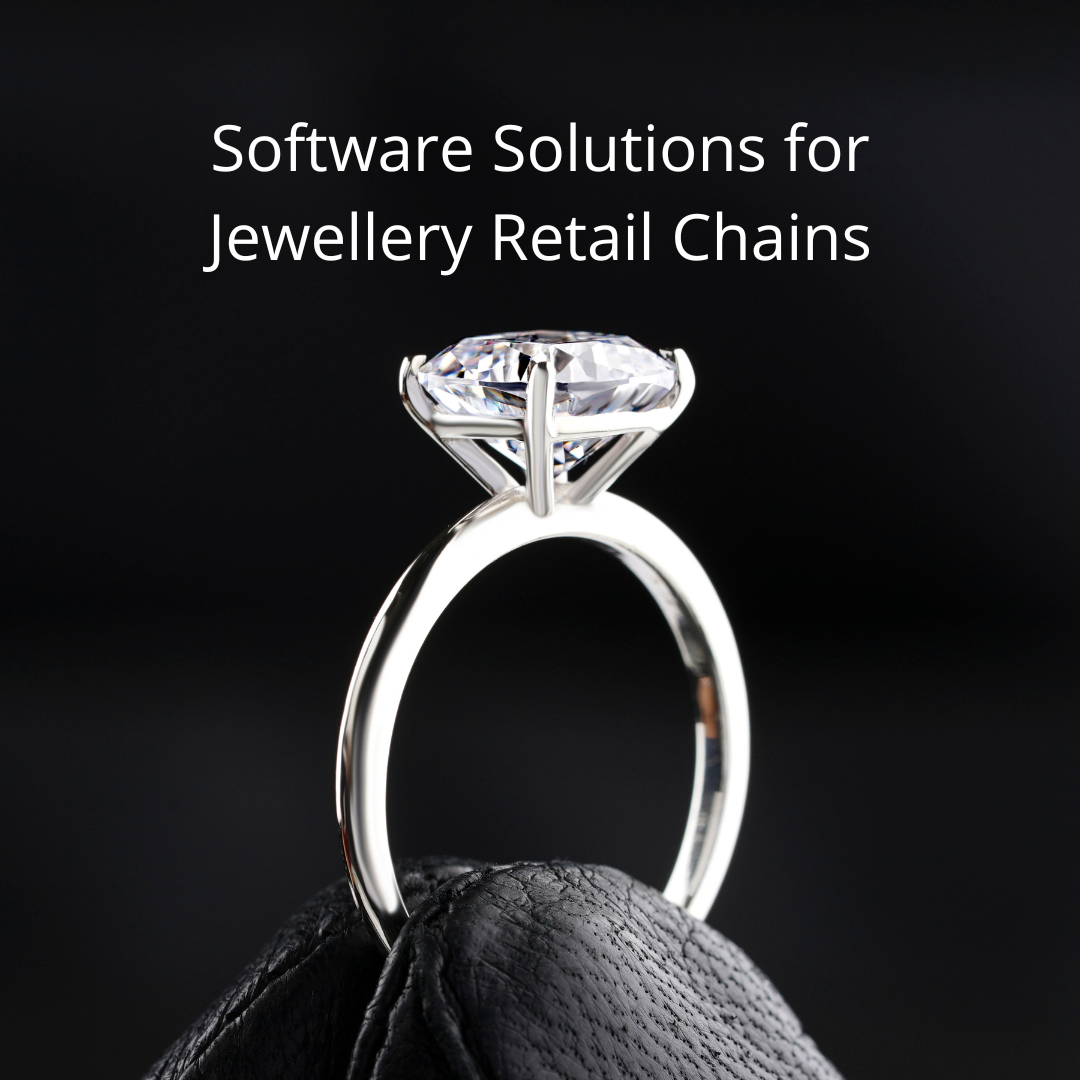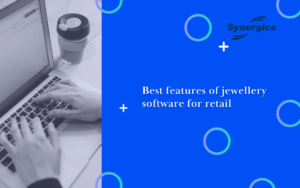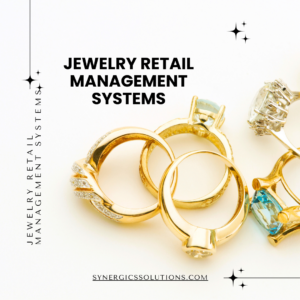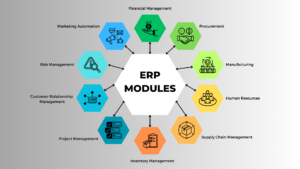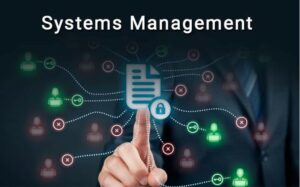In the dynamic and competitive world of retail, jewellery businesses face unique challenges. Managing multiple stores, tracking inventory across various locations, and providing exceptional customer service are just a few of the complexities that come with running a successful jewellery retail chain. However, with the right technology tools, these challenges can transform into opportunities for growth and efficiency.
The Evolution of Jewellery Retail Software
Gone are the days when jewellery retailing relied solely on manual processes and traditional methods. Today, the industry is witnessing a digital transformation, with jewellery retail software leading the way. These sophisticated software solutions offer a comprehensive suite of tools designed to streamline operations, enhance customer experiences, and drive business growth.
Efficient Inventory Management
One of the most significant advantages of specialised jewellery retail software is its ability to manage inventory across multiple locations seamlessly. For retail chains with numerous stores, tracking the movement of each piece of jewellery can be a daunting task. However, with advanced inventory management features, such as real-time updates, automated reordering, and SKU tracking, retailers can ensure that their shelves are always stocked with the right products.
Furthermore, these software solutions provide insights into fast-moving items, slow-moving inventory, and seasonal trends. Armed with this data, jewellery retailers can make informed decisions about purchasing, pricing strategies, and promotions, ultimately maximizing profitability.
Enhanced Customer Engagement
In the jewellery business, building lasting relationships with customers is paramount. Jewellery retail software offers customer relationship management (CRM) tools that allow businesses to create personalised experiences for their clientele. From tracking purchase histories to sending birthday reminders and special offers, these CRM functionalities enable retailers to connect with customers on a deeper level.
Additionally, some software solutions integrate with e-commerce platforms, enabling jewellery chains to establish an online presence. This omnichannel approach ensures that customers can browse products, make purchases, and even schedule appointments seamlessly, whether in-store or online.
Streamlined Operations with ERP
For jewellery retail chains looking to integrate all aspects of their business, Enterprise Resource Planning (ERP) systems are indispensable. An ERP for jewellery business consolidates various functions such as inventory management, sales, finance, and human resources into a single, cohesive platform. This integration eliminates data silos, reduces manual errors, and improves overall operational efficiency.
With ERP systems, jewellery retail chains can automate routine tasks, generate insightful reports, and gain a holistic view of their entire business landscape. Whether it’s tracking the performance of individual stores, managing payroll for employees across locations, or analysing market trends, ERP software empowers retailers with the tools they need to make data-driven decisions.
Choosing the Right Software
With a myriad of options available in the market, selecting the appropriate software for a jewellery retail chain requires careful consideration. Factors such as the size of the business, the number of stores, specific requirements, and budgetary constraints all play a role in this decision-making process.
- Scalability: Ensure that the software can grow with the business, accommodating additional stores and expanding operations seamlessly.
- Customisation: Look for solutions that offer customisation options to align with the unique needs of the jewellery retail chain.
- User-Friendly Interface: Intuitive interfaces and easy navigation are essential for quick adoption by employees across all levels.
- Training and Support: Choose a vendor that provides comprehensive training and ongoing support to maximise the software’s benefits.
Conclusion
In the fast-paced world of jewellery retail, leveraging technology is no longer an option but a necessity for growth and success. “ERP for Jewellery Business” are not just buzzwords; they represent powerful tools that can revolutionise how jewellery chains operate, from inventory management to customer engagement and beyond.
By investing in the right software solutions, jewellery retail chains can streamline operations, enhance customer experiences, and ultimately, pave the way for sustainable growth in an ever-evolving industry.
So, whether it’s tracking the movement of a rare diamond necklace or sending a personalised offer to a loyal customer, jewellery retailers can rely on these tech tools to not only survive but thrive in the competitive world of retail.
FAQ’s
1. What is “Software for jewellery retail chain”?
“Software for jewellery retail chain” refers to specialized software solutions designed to meet the unique needs of jewellery businesses with multiple stores or locations. These software packages offer features such as inventory management, customer relationship management (CRM), sales tracking, and often integrate with e-commerce platforms to streamline operations and enhance customer experiences.
2. How can “Jewellery Retail software” benefit my business?
“Jewellery Retail software” provides numerous benefits to jewellery retail chains, including:
- Efficient Inventory Management: Keep track of jewellery pieces across multiple stores, manage stock levels, automate reordering processes, and gain insights into inventory trends.
- Enhanced Customer Engagement: Utilize CRM tools to create personalized experiences for customers, track purchase histories, send special offers, and manage customer interactions both in-store and online.
- Omnichannel Presence: Integrate with e-commerce platforms to establish an online store, allowing customers to browse products, make purchases, and schedule appointments seamlessly.
3. What is an “ERP for Jewellery Business” and why is it important?
An “ERP for Jewellery Business” is an Enterprise Resource Planning system tailored to meet the needs of jewellery retail chains. This type of software integrates various business functions such as inventory management, sales, finance, and human resources into a single platform.
Benefits of an ERP for jewellery businesses include:
- Streamlined Operations: Automate routine tasks, eliminate data silos, and improve overall operational efficiency.
- Data-Driven Decision Making: Gain insights through comprehensive reports, track store performance, manage payroll, and analyze market trends to make informed business decisions.
- Scalability: Grow the business with ease, adding new stores or expanding operations without disruption.
4. How do I choose the right software solution for my jewellery retail chain?
When selecting software for your jewellery retail chain, consider the following factors:
- Scalability: Ensure the software can accommodate the growth of your business, adding new stores or features as needed.
- Customization: Look for solutions that can be tailored to your specific requirements, whether it’s unique inventory needs or customer engagement strategies.
- User-Friendly Interface: Opt for software with intuitive interfaces and easy navigation to facilitate quick adoption by employees.
- Training and Support: Choose a vendor that offers comprehensive training and ongoing support to maximize the benefits of the software.
By carefully evaluating these factors and understanding the specific needs of your jewellery retail chain, you can choose a software solution that enhances operations, improves customer experiences, and drives growth.
5. How can software solutions help with inventory management in jewellery retail chains?
Software solutions for jewellery retail chains offer robust inventory management features, including:
- Real-Time Updates: Track inventory levels across all stores in real-time, ensuring accurate stock information.
- Automated Reordering: Set up automatic reordering based on predefined thresholds to prevent stockouts.
- SKU Tracking: Assign unique identifiers to each jewellery piece for easy tracking and management.
- Insights and Reporting: Gain insights into fast-moving items, slow-moving inventory, and seasonal trends to optimize purchasing and pricing strategies.
By leveraging these features, jewellery retail chains can minimize stock discrepancies, improve inventory turnover, and ensure shelves are always stocked with the right products.
6. Can jewellery retail software integrate with e-commerce platforms?
Yes, many jewellery retail software solutions offer integration with e-commerce platforms. This integration allows jewellery retail chains to establish an omnichannel presence, offering customers the flexibility to browse products, make purchases, and schedule appointments seamlessly, whether online or in-store.
By syncing inventory levels, pricing, and customer data between the retail software and the e-commerce platform, jewellery retailers can provide a cohesive shopping experience across all channels, enhancing customer satisfaction and driving sales.
7. How do CRM tools in jewellery retail software benefit customer engagement?
CRM tools in jewellery retail software enable retailers to build and maintain strong relationships with customers. These tools offer features such as:
- Customer Profiles: Maintain detailed profiles for each customer, including purchase history, preferences, and contact information.
- Personalized Communications: Send targeted emails, SMS messages, or notifications with personalized offers, promotions, and event invitations.
- Follow-Up Reminders: Set reminders for important dates such as birthdays, anniversaries, or past purchase anniversaries to reach out to customers with special offers.
By leveraging CRM tools, jewellery retail chains can create tailored experiences for customers, strengthen brand loyalty, and drive repeat business.
8. How can ERP software benefit jewellery retail chains beyond inventory management?
ERP software for jewellery retail chains offers a wide range of benefits beyond inventory management, including:
- Financial Management: Streamline financial processes such as invoicing, payments, and budgeting, ensuring accurate and timely financial reporting.
- HR Management: Centralize employee data, manage payroll, track attendance, and streamline HR processes across all store locations.
- Analytics and Reporting: Generate comprehensive reports on store performance, sales trends, customer demographics, and market insights to make data-driven decisions.
By integrating these functions into a single platform, ERP software empowers jewellery retail chains to optimize operations, improve efficiency, and drive growth.
9. What kind of support can I expect from software vendors for jewellery retail solutions?
Software vendors for jewellery retail solutions typically offer a range of support services, including:
- Implementation Assistance: Help with the initial setup and configuration of the software to align with your business needs.
- Training Programs: Conduct training sessions for employees to ensure they are proficient in using the software effectively.
- Ongoing Technical Support: Provide a dedicated support team to address any technical issues, troubleshoot problems, and offer guidance on software updates and upgrades.
- Updates and Maintenance: Regularly release updates, patches, and new features to improve the software’s functionality and address any issues.
By partnering with a reliable software vendor that offers comprehensive support services, jewellery retail chains can ensure a smooth implementation process and continued success with their chosen software solution.
10. How can software solutions help jewellery retail chains stay competitive in the market?
In today’s competitive market, jewellery retail chains need to differentiate themselves by offering exceptional customer experiences, efficient operations, and innovative services. Software solutions empower jewellery retailers to:
- Optimize Operations: Streamline inventory management, automate processes, and improve overall efficiency.
- Enhance Customer Engagement: Personalize communications, offer omnichannel shopping experiences, and build lasting relationships with customers.
- Make Informed Decisions: Utilize data analytics, sales reports, and market insights to make strategic business decisions.
- Adapt to Market Trends: Stay agile and responsive to changing market demands, seasonal trends, and customer preferences.

